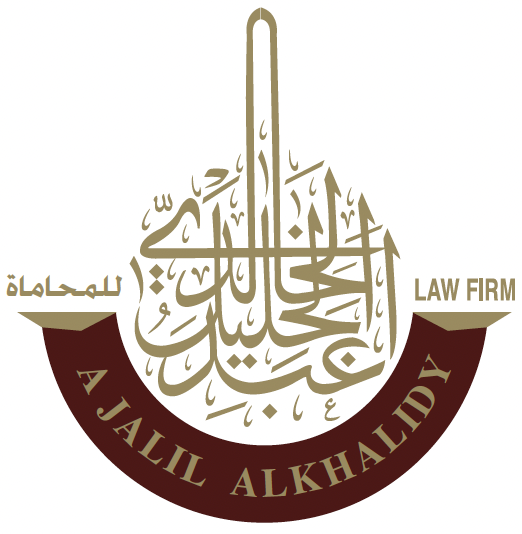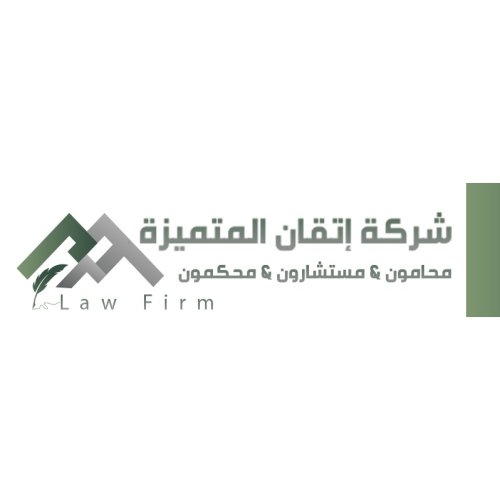Best Adoption Lawyers in Saudi Arabia
Share your needs with us, get contacted by law firms.
Free. Takes 2 min.
Free Guide to Hiring a Family Lawyer
Or refine your search by selecting a city:
List of the best lawyers in Saudi Arabia
About Adoption Law in Saudi Arabia
In Saudi Arabia, the concept of adoption does not entirely align with the definition commonly found in Western countries. The country follows Islamic law, which does not permit adoption as it is known in some parts of the world. Instead, there is a practice known as "Kafalah," a legal arrangement similar to guardianship, where the child does not lose their original family identity. Prospective guardians provide care, custody, and financial support for a child, but the child is not granted inheritance rights automatically. Adoption in the traditional sense, where a child is legally and permanently taken into a family as though they were born to them, is not legally recognized.
Why You May Need a Lawyer
There are numerous scenarios where an individual or family might require legal assistance regarding adoption or guardianship in Saudi Arabia. These situations can include:
- Understanding the legal frameworks involved in the guardianship process.
- Navigating the application process for Kafalah and ensuring correct documentation.
- Dealing with international cases that involve foreign laws or cross-border custody issues.
- Clarifying inheritance and succession rights under Islamic law in the context of guardianship.
- Resolving disputes related to custody or parental rights.
- Ensuring compliance with Sharia law while making guardianship arrangements.
Local Laws Overview
Under Saudi law, the adoption process is guided by Islamic principles, and only the Kafalah system is permitted. This system allows for the care and guardianship of the child without transferring parenthood or lineage. Key aspects include:
- Kafalah does not alter the child's original family ties; the child retains their biological family name.
- The custodian provides financial support, emotional care, and ensures the child’s welfare.
- In some situations, the custodian can make legal decisions on behalf of the child, akin to parental rights, but must work within the bounds of Islamic law.
- Renewed emphasis is placed on maintaining the child's rights to know and belong to their biological family.
- Court approval is generally required for a Kafalah arrangement, reinforcing the importance of legality and proper procedures.
Frequently Asked Questions
What is Kafalah?
Kafalah is a system under Islamic law where a person assumes responsibility for the care and financial support of a child without affecting the child's legal affiliation to their biological parents.
Can a child adopted through Kafalah inherit from their guardians?
No, guardianship under Kafalah does not automatically confer inheritance rights. Guardians must legally nominate the child to benefit from their estate through a will.
Is international adoption allowed in Saudi Arabia?
Saudi Arabia does not engage in international adoption as it is understood in other countries. Non-Saudi custodians may provide care under specific circumstances, but this is rare and subject to stringent regulations.
What are the requirements to become a guardian under Kafalah?
Prospective guardians must demonstrate financial and emotional stability, provide a safe living environment, and comply with all Islamic legal requirements. Court approval is essential.
Can expatriates or foreign nationals partake in Kafalah in Saudi Arabia?
Typically, Kafalah is reserved for Saudi citizens or permanent residents. Expatriates may face significant legal and social hurdles in becoming guardians.
How can a lawyer assist with Kafalah proceedings?
An experienced lawyer can guide prospective guardians through the complex legal requirements, help prepare necessary documentation, and represent them in court.
Can Kafalah be revoked?
Yes, Kafalah can be revoked under certain circumstances, particularly if the guardian is found to be unsuitable or violates the terms of the agreement, subject to judicial review.
What happens if a guardian becomes incapacitated?
If a guardian can no longer fulfill their duties, a secondary guardian may be appointed, subject to court approval, to ensure continuous care for the child.
Are there specific courts that handle Kafalah?
Family courts in Saudi Arabia typically handle Kafalah cases, with proceedings guided by specialists familiar with Sharia and local laws.
What is the process of obtaining legal custody under Kafalah?
It involves filing an application with the family court, undergoing a suitability assessment, presenting required documentation, and obtaining judicial approval.
Additional Resources
For more information and support, the following resources may be useful:
- The Ministry of Human Resources and Social Development: Oversees many aspects of family welfare, including guardianship.
- Islamic courts and Sharia experts: Provide legal interpretations and advice related to Kafalah and guardianship under Islamic law.
- Local legal aid organizations: Offer pro bono or low-cost legal advice regarding family law matters.
- Social service agencies: Can provide guidance, counseling, and support services applicable to guardianship issues.
Next Steps
If you need legal assistance regarding adoption or the Kafalah system, consider the following steps:
- Consult with a legal expert who specializes in family law and has experience with Saudi adoption practices.
- Gather necessary personal and financial documentation to streamline the legal process.
- Engage with governmental bodies or accredited agencies to understand the procedural requirements thoroughly.
- Prepare for possible court proceedings by understanding your rights and responsibilities under the Kafalah arrangement.
- Stay informed about any changes in local laws that may impact custody or guardianship frameworks.
Lawzana helps you find the best lawyers and law firms in Saudi Arabia through a curated and pre-screened list of qualified legal professionals. Our platform offers rankings and detailed profiles of attorneys and law firms, allowing you to compare based on practice areas, including Adoption, experience, and client feedback.
Each profile includes a description of the firm's areas of practice, client reviews, team members and partners, year of establishment, spoken languages, office locations, contact information, social media presence, and any published articles or resources. Most firms on our platform speak English and are experienced in both local and international legal matters.
Get a quote from top-rated law firms in Saudi Arabia — quickly, securely, and without unnecessary hassle.
Disclaimer:
The information provided on this page is for general informational purposes only and does not constitute legal advice. While we strive to ensure the accuracy and relevance of the content, legal information may change over time, and interpretations of the law can vary. You should always consult with a qualified legal professional for advice specific to your situation.
We disclaim all liability for actions taken or not taken based on the content of this page. If you believe any information is incorrect or outdated, please contact us, and we will review and update it where appropriate.
Browse adoption law firms by city in Saudi Arabia
Refine your search by selecting a city.
















